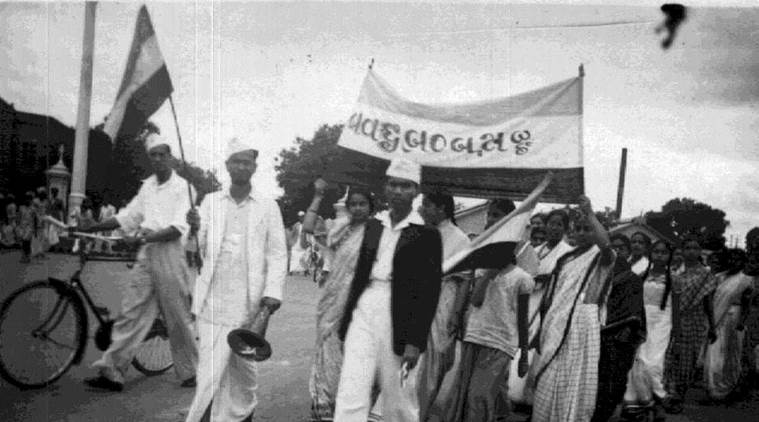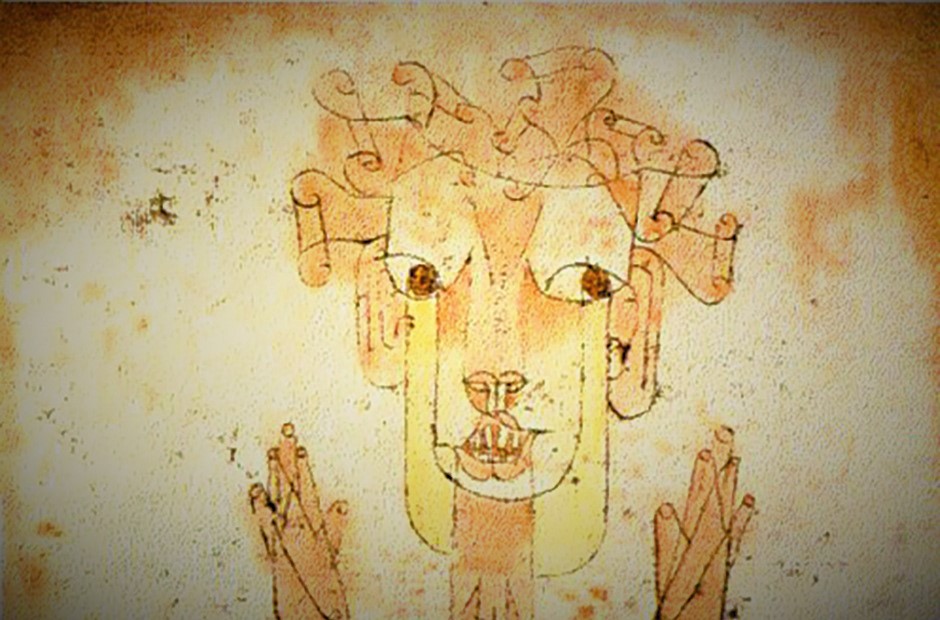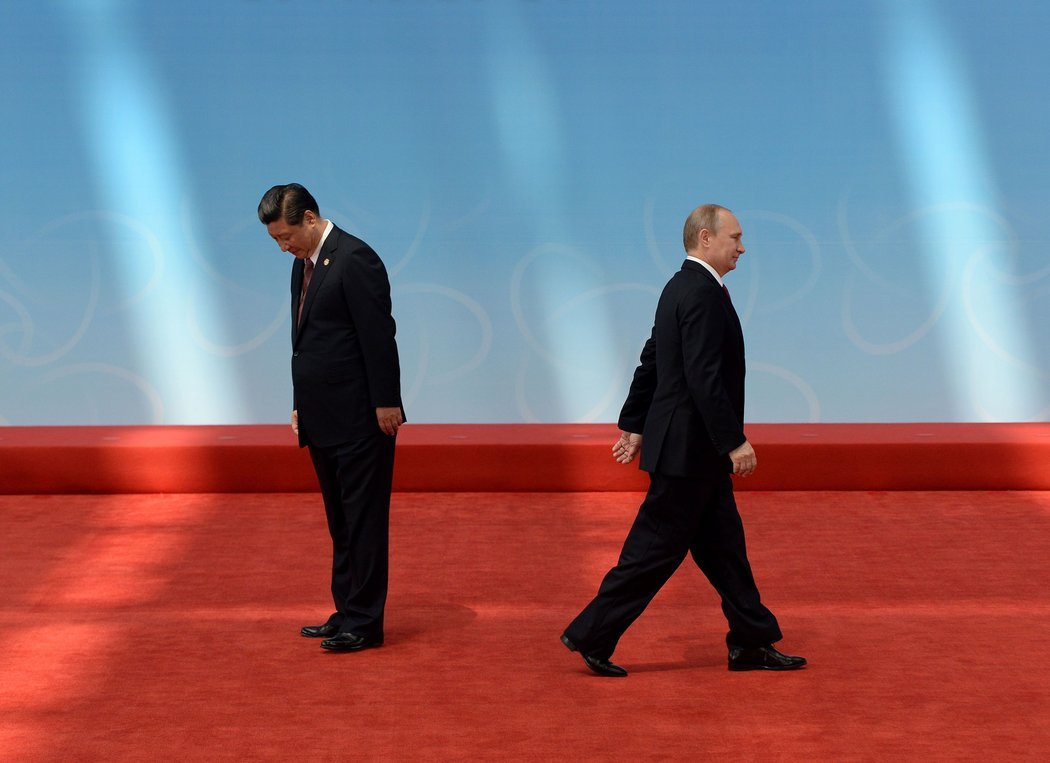Manali Desai
The call for a ‘post-colonial’ turn in sociology in recent years has pointed to the neglect of colonial and imperialist histories that have constituted the modern world, and which have been elided from the key concepts that historical sociologists use in their research. Arguing that this elision leads to a form of ‘analytical bifurcation’ of European and other histories, and an unexamined Enlightenment scientism which, among other problems, leads to a variables-based approach to cases, a number of authors have instead advocated a ‘connected history’ that examines relations rather than essences (Bhambhra 2007; Go 2013). Implicit in the practice of sociology innocent of its colonial origins, is what has been described as ‘methodological nationalism’, that is, the analytical practice of treating nations as things that can be meaningfully compared, and that seemingly possess an ontological coherence.
In this blog article, I draw upon scholarly developments in India to question whether the domain of ‘nation’ poses particular challenges to such a postcolonial sociology. These challenges, I will argue, stem from the double elision implicit in calls for postcolonial sociology – of the domain of post-colonial nationalism, and of the nation’s own territorial bifurcation into India and Pakistan that occurred in the process of emergence from colonial rule. From anti-colonial nationalism to territorial bifurcation and beyond, the idea of nation has simultaneously troubled and informed India’s political articulations. A renewed postcolonial sociology will need to confront this double elision of nation and nationalism by attending not only to the colonial relations that constituted an entity such as India but equally by attending to the semiotics of the internal struggle to define the terms of sovereignty. As Partha Chatterjee has shown in the case of India, these internal struggles split the putative ‘nation’ into a material and spiritual domain. This was further compounded by the territorial bifurcation of India and Pakistan as two separate entities, one purportedly secular and the other essentially religious. These bifurcations created a cultural, emotional and sensory legacies for future struggles, legacies that are continually adapted in the service of political hegemony. A reinvigorated postcolonial sociology that attends to this troubled history of the nation is better placed to offer a critical perspective on the contemporary crisis moment that manifests differently across the globe.
Let us look at this argument more closely. In The Nation and Its Fragments, Partha Chatterjee (1993) argues that early Indian nationalists created a template for sovereignty based upon the putative spiritual superiority of the incipient nation over the material progress of the colonial West. This bifurcation was a strategic setting out of the ground upon which the new India would lay claim to its future autonomy from British rule. This domain was defined through religion, culture, family – the antinomy of material-scientific rationality – which elite Indians later claimed themselves capable of achieving. These moments in the development of Indian nationalism, arguably, created a national whole through its fragments – women, peasants, castes – who were then pressed into the service of modernity during India’s moment of arrival into full post-colonial nationhood.
We do not need to assume a linear logic of movement from spirituality to rationality in this narrative of emergence of the Indian nation-state; indeed, these were two, not necessarily competing poles of nationalist discourse which have continued to animate political struggles in India. We can see this in the progression of Hindu nationalism over the past two decades, where the spiritual and material are both reactivated to claim the superiority of the Hindu nation over the ‘pseudo-secular’ versions of the past, which Hindu nationalists argue is derived directly from the problematic legacy of Nehruvian-secular imaginings of the nation. This re-activation is not a seamless development from a prior legacy. Instead, the degree to which claims about Hindu moral superiority are balanced with the claims to rational-scientific progress shifts, depends very much on the conjuncture in which such claims are being made. For example, the Bharatiya Janata Party (BJP) has sought to promote itself as the party of a technologically-led developmental revolution with claims to nuclear and military strength since the late 1990s, thus appealing to the scientific-business-professional community within India and its vast diaspora. Many successful businessmen and women flocked to India to jumpstart this revolution during the 1990s. While promoting this model of Western capitalism, the BJP has simultaneously enabled a range of Hindu spiritual gurus and healers to promote Ayurveda, yoga and other spiritual practices aimed at an audience that is constructed as needing an antidote to this form of capitalism. There are echoes in much of this discourse about the environmental consequences of unbridled Western consumerism. A key proponent of sustainable, organic farming Vandana Shiva, has expressed clear affiliation for Hindu nationalism in its anti-globalization incarnation.
What is important here is that the anti-colonialism of India’s nationalists during the 1930s and 40s has been replaced by a postcolonial sensibility that is incorporated into Hindu nationalist imaginaries. A growing emphasis on non-Western philosophy, and disavowal of eurocentrism is brought in as a key element in carving out the properly spiritual-material nation of India that is able to effectively claim its place in the modern world. Rajiv Malhotra, an academic trained at Syracuse University, and the founder of the Infinity Foundation think tank writes:
Ensconced thus in the driver’s seat, with its undeniably ethnocentric blueprint of what the world should look like, the Western collective ego has embarked on scores of missions – religious and secular (colonization), to bring about this Westernization. When such attempts collide with contrasting and contradictory worldviews, the response has been one of many tactics – acculturation, religious conversion, colonization, isolation, disparagement, genocide and appropriation. What matters most in this process is that Western identity must remain perpetually at the helm of human affairs, it’s own grand narrative further strengthened at each encounter, and the rest of the world only the frontier for it to play out its manifest destiny. . . . Hegelian views concerning India’s ‘lack of history’ are at the root of much of the past dismissal of India and they shape attitudes toward India even today. Hegel blinded the West to the parochialism of its supposed universals and consolidated the discourse on what was wrong about India. The degree to which Western scholarship has been influenced by his linear theory of history (including many Marxist and humanist accounts of history and the various philosophies built on such accounts) is truly amazing (Malhotra 2018).
There is little here that one might disagree with. And yet, the Infinity Foundation’s work draws upon such insights to promote an unabashedly Hindu revivalist narrative of Swadeshi (self-rule), blending seamlessly with the current political wave of Hindutva. A key element of this revivalism is to counter Western influence in the form of Marxist liberation movements (the ongoing Maoist insurgency in east and central India) and Dalit movements – both of which are seen as alien to the indigenous concepts of belonging and Swadeshi.
A number of other writers have occupied this postcolonial space, including Vamsee Juluri, a Professor of Media Studies at San Francisco State University, and G. N. Balagangadhar of Ghent University, who view contemporary discourse about inequality and oppression in India as evidence of a colonial consciousness. Dr. Prakash Shah, Reader of Culture and Law at Queen Mary University, argues that the caste system is a purely-Western construct. In India, he argues, there are castes but there is no caste system. It follows for him that caste violence is not endemic to the idea of caste itself, and Shah cites data showing that violence against Dalits and Scheduled Tribes is less than the violence experienced by members of other groups. While there are superficial analogies between this position and that of Bernard Cohn, who was concerned with the textual and discursive authority of particular castes under British rule, it is nevertheless telling that a socially-conservative proposition denying the existence of systemic caste oppression is able to draw so explicitly on the language of postcolonial and decolonial thought.
The invocation of Hindu-based ideology as a progressive counterpart to colonialism draws not only upon tropes that were invoked in the long history of the Indian nationalist movement, but also upon the post-colonial bifurcation of India and Pakistan into domains defined by a progressive but oppressed religious community (Hindus) and a regressive and fundamentalist religious community of Muslims in Pakistan. This bifurcation persists with great ferocity in contemporary India, criss-crossing with a powerful sense of victimhood. This, too, is part of the postcolonial condition for which sociology needs an adequate vocabulary.
Within the Indian context, postcolonial theory since the 1980s had a long and fruitful connection to Marxist social theory, and both were integrally connected with contemporary political questions. We might recall that, at its inception, subaltern studies was concerned with pointing out the ways in which nationalism, as constructed by elite leaders, could never quite contain the political desires of workers, peasants and other subaltern actors, who called for a more radical overhaul of indigenous forms of oppression (Chakrabarty 1998: 13). The essentially-postcolonial critique of nationalism set itself against two modes of historiography that were prevalent in the 1970s: the Cambridge historians who viewed nationalism as a project of narrow political and economic interests of a small elite, and some Marxist historians who saw nationalism as a fundamentally regenerative project that held the potential for radical transformation. The innovation of the subaltern school was to excavate materials on subaltern protest which showed that neither narrative quite fit. In Dipesh Chakrabarty’s view, this subaltern history was concerned not merely with inaugurating a ‘history from below’ in the tradition of E. P. Thompson, but with making a break from universalist histories of capitalism, nation formation, and the archive itself. In doing so, the very category of the ‘political’ would be revised; no longer confined to the distinction between the universalist, progressive political and the regressive, kinship and religious based pre-political. The degree to which the subaltern collective revised, rather than merely reversed, the importance of these categories can be debated. Yet it is clear that the postcolonial intervention in Indian historiography sought to break down the bifurcation of categories of perception about subaltern practices, and in doing so, attempted to widen the scope of what we consider ‘politics’. As Chakrabarty writes, “the history of colonial modernity in India created a domain of the political that was heteroglossic in its idioms, irreducibly plural in its structure, interlocking within itself strands of different relations that did not make up a logical whole” (p. 20).
For many writers, such as Partha Chatterjee, an engagement with Marxism (via Gramsci) continued (and continues) to be important, and grappling with the nature of Indian capitalism remained an important element of thinking outside Western universalism. Yet there was a clear trend through the 1980s and 1990s of the decoupling of postcolonial theory from Marxism, particularly as the latter became more embedded in Western academic departments. This led a number of scholars to lament that colonialism had become analytically isolated from capitalism, and had replaced the latter as the core object of theory. Susie Tharu, a Dalit feminist writer in India, suggested that for many in India, “postcolonial is not a useful category – it is restrictively attached to an isolated and definitive problematic – colonialism.” Her comments in a round-table discussion titled “The End of Postcolonial Theory?” were echoed by Fernando Coronil, Mamadou Diouf, and other writers whose self-identification remains outside the mainstream of Western academia As Tharu noted:
[g]iven the heterogeneity and the unstable unity of hegemonic formations, such global radicalism may be for nothing. After Marx we are persuaded that such concepts should be designed as instruments to cut with . . . and after Foucault that knowledge has always been an instrument of power. The tough question is: what and how is postcolonial studies cutting?
For Tharu, its distance from Third World problems, the lack of investment in actual intellectual and political tasks confronting the Third World (as outlined in the case of Hindu nationalism) renders the idea of ‘postcolonial’ insufficient.
What, then, of the idea of ‘postcolonial sociology’? At one level, this is an endeavour one cannot argue with, for it points to the erasure of colonialism from the disciplinary self-understanding and practice of Western sociology. For historical sociology, breaking down the analytical bifurcation derived from this self-understanding and practice undoubtedly challenges the variables-based analysis of discrete cases that continues to animate comparative work in the sub-discipline. But it is one thing to question the positivistic assumptions that remain embedded in a field that does not sufficiently account for the role of colonial relations in constituting the objects and categories we use in historical sociology. But this approach assumes that the representational politics of ‘postcolonial’ is a worthy counter-articulation to Eurocentric Sociology, when its own heteroglossia renders it incapable of consistently playing this role. In his brilliant and ever-relevant essay, “New Ethnicities,” Stuart Hall (1996) argued that the political category of Black, which had once assumed a certain clarity within the racist politics of the pre-Thatcher years, increasingly had to confront a second struggle – that of representation, i.e. the politics of representation. This meant the “end of the innocent notion of the essential black subject.” At issue, he argued, was the “recognition of the extraordinary diversity of subjective positions, social experience and cultural identities which compose the category ‘black’; that is, the recognition that ‘black’ is essentially a politically and culturally constructed category” (p. 443). Hall used the term ‘articulation’ to describe this process of construction and congealing of categories at certain historical conjunctures. The idea of articulation (see also De Leon, Desai and Tuğal 2009, 2015), holds much promise for a reinvigorated ‘postcolonial’ sociology, one which takes the politics of representation as a core element of concept formation. Colonial and imperial histories, and the histories of contestation (by no means amenable to singular representations in terms of class or nation) are analytically integral to these articulations. But replaying this through analytical categories, such as East vs. West, global North vs. South, however well meaning, risks reproducing rather than querying the forms of power that embody the very bifurcation itself.
Manali Desai is Lecturer in Sociology at Newnham College, University of Cambridge, whose research focuses on state formation, political parties, social movements, development, ethnic violence, gender, and post-colonial studies.
References
Bhambhra, Gurminder. 2007. Rethinking Modernity: Postcolonialism and the Sociological Imagination. Basingstoke and New York: Palgrave Macmillan.
Chakrabarty, Dipesh. 1989. Rethinking Working-Class History: Bengal 1890–1940. Princeton: Princeton University Press.
Chopra, Ritika. 2016. “Indian Caste System is a Western Construct, says Indian Scholar at ICHR lecture.” Indian Express, http://indianexpress.com/article/india/india-news-india/ichr-lecture-indian-caste-system-western-construct-4371000/ (12 November). Accessed March 28, 2018.
Chatterjee, Partha. 1993. Nation and Its Fragments: Colonial and Postcolonial Histories. Princeton: Princeton University Press.
De Leon, Cedric, Manali Desai, and Cihan Tuğal. 2009. “Political Articulation: Parties and the Constitution of Cleavages in the United States, India, and Turkey.” Sociological Theory 27 (3): 193-219.
De Leon, Cedric, Manali Desai, and Cihan Tuğal. 2015. Building Blocs: How Parties Organize Society. Stanford: Stanford University Press.
Go, Julian. 2013. “For a Postcolonial Sociology.” Theory and Society, vol. 42, no. 1, pps. 25-55.
Hall, Stuart. 1996. “New Ethnicities.” In Stuart Hall: Critical Dialogues in Cultural Studies, ed. D. Morley and C. Kuong-Hsin. New York: Routledge.
Malhotra, Rajiv. 2012. “Challenging Western Universalism.” https://rajivmalhotra.com/library/articles/challenging-western-universalism/ (9 March). Accessed March 28, 2018.
Tharu, Susie. 2007. “Editor’s Column: The End of Postcolonial Theory?” PMLA 122 (3): 633-651.




